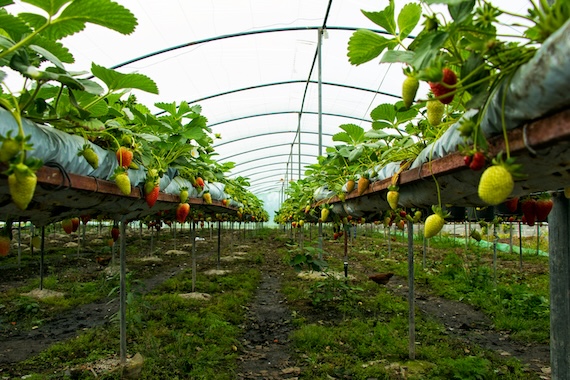Greenfield, Mass. (Special to Informed Comment; Feature) – Nuclear physicist Edward Teller predicted in 1959 that the risks of burning fossil fuels, by increasing carbon dioxide (C02) in the atmosphere, may be sufficient in time to melt polar icecaps and submerge all coastal cities. These predictions, which are proving accurate, were buried by the fossil fuel industry and their trade associations — who have countered critics with a smokescreen of fake science and disinformation campaigns.
Even internal documents from the fossil fuel industry through the early 1990s predicted quite accurately the impact of burning fossil fuels. Since then, the industry– using the tactics of the tobacco industry–has sown doubt and uncertainty with the public, claiming there is no definitive evidence that human activities affect global climate. Supported by American Petroleum Institute, they have recently hacked sophisticated pro-environment research and advocacy organizations like that of the Union Concerned Scientists.
In lockstep Donald Trump has pledged brand new “beautiful fossil fuel power plants,” and with arrogant stupidity, he alleges there is no social cost of carbon and searches for as many opportunities as possible to suck more oil, gas and coal out of the Earth. Singlehandedly, he is accelerating the economy of extinction. Biden’s administration, too, increased oil and gas drilling, but at least they put a social price of $190 per ton on carbon, equivalent to $180 billion per year (a serious underestimate of the cost of wildfires, droughts, floods, dangerously hot days, particulate pollution which have caused heart attacks and more severe asthma attacks.)
Recently, researchers at Dartmouth have determined that 111 of the world’s largest fossil fuel industries have caused $28 trillion in heat-related damages (this does not include hurricanes and other related devastation), with 10 corporations responsible for more than half of this damage. Their work is enabling states and individuals to sue companies for the harm they have caused.
But the tragic news is that present day culture is on a suicide course. Research by an international team of sea level and polar ice experts warns that limiting warming to 2.7 degrees Fahrenheit (1.5 degrees Celsius) above the pre-industrial temperature—the 2015 Paris climate agreement’s target—isn’t low enough to prevent a worst-case meltdown of Earth’s polar ice sheets. In certain low-lying parts of the world, sea levels could be rising by as much as 8 to 12 inches per decade within the lifetime of today’s youngest generations, outpacing the ability of many coastal communities to adapt. A better target for maintaining a safer climate might be close to 1.8 degrees Fahrenheit or 1 degree Celsius above pre-industrial times, said Durham University geographer and glacier expert Chris Stokes. Compounding the crisis are budget cuts to NOAA (National Oceanic and Atmospheric Administration), especially in climate-related programs, that will undermine our ability to predict sea level rise.
Recently, though, we were given a climate gift: Into the Clear Blue Sky published by Rob Jackson, climate scientist and chair of the Global Carbon Project, makes a promising point about methane gas, an extremely potent greenhouse gas. Cutting methane emissions can reduce global warming much faster than cutting CO2 emissions and it is the “only major greenhouse gas for which we could restore the atmosphere in a lifetime.” Accelerating faster today than at any time since record-keeping, methane has been neglected as an opportunity to reduce global warming rapidly until recently. Restoring methane to pre-industrial levels could save 0.5 degrees Centigrade-bringing current levels down to near 1 degree Centigrade, and it could happen in our lifetime. The cheapest, safest and only sure path to a safe climate starts with slashing emissions of methane.
More than half of methane emissions from human activities are agricultural, and most of these agricultural methane emissions are from the 1.5 billion or so cows grazing the planet, which humans can reduce by one action: stop eating beef. Methane pollution and deforestation of the tropical rainforest meet in beef consumption. Cattle and sheep and oxen are responsible, through flatulence and belching, for more methane emissions than the fossil fuel industries. The maxim we are what we eat carries a deeper level of significance when we realize that stopping eating meat is the quickest way to reduce global temperatures.

Photo by Shiva Mardahi on Unsplash
Americans on average eat 4 times as much beef as the average person globally. Pat Brown, professor emeritus of biochemistry at Stanford University, has made his mission to convince people to replace the beef and dairy product industry by eating plant-based foods. Determined to “kill the meat industry,” he has created Impossible Foods that includes burgers, chicken tenders and sausages made from plants, now found in more that 20,000 supermarkets and restaurants in the United States and six other countries.
If grain fed to livestock were fed to people in high-protein vegetarian food products, it would reduce land used for feeding cows by 96%, conserve water by nearly 90%, generate 89% less methane emissions from cows’ flatulence, return land to native flora and fauna and preserve the Amazonian rainforest.
Every meal is an opportunity to reduce methane production and restore the Earth for future generations. Go vegetarian!


 © 2026 All Rights Reserved
© 2026 All Rights Reserved